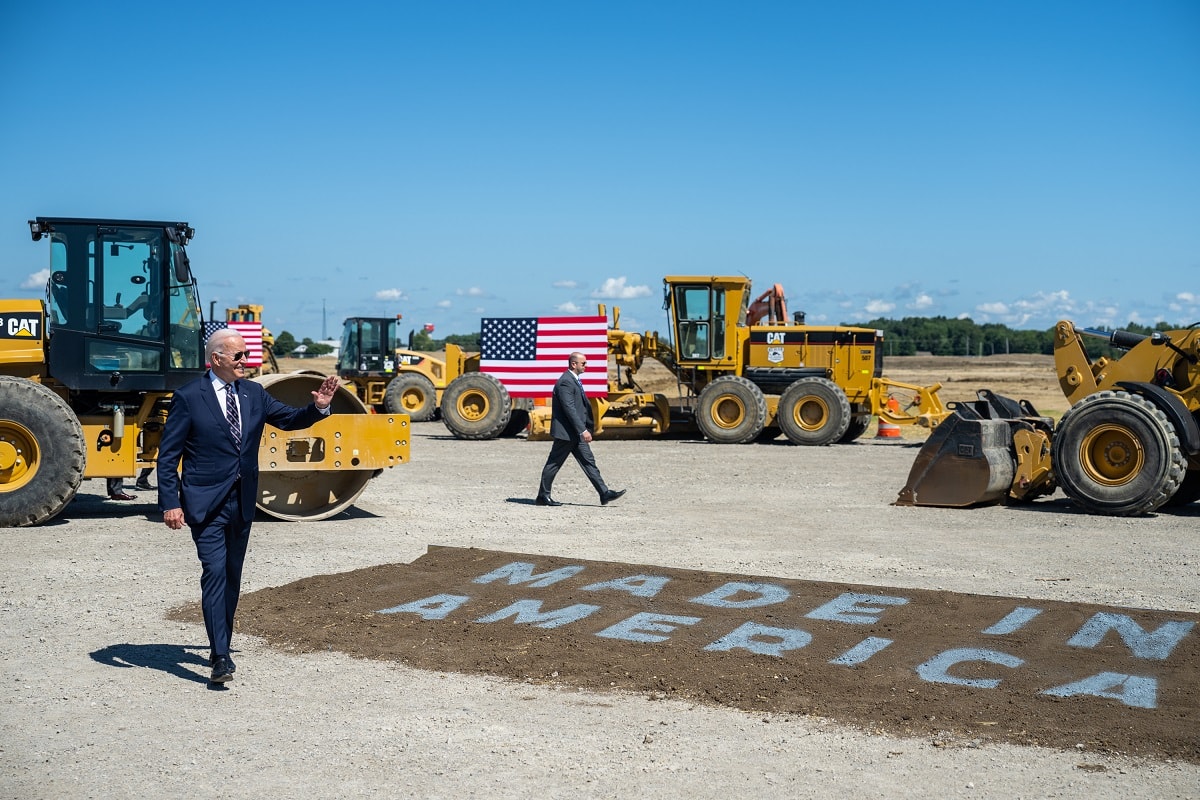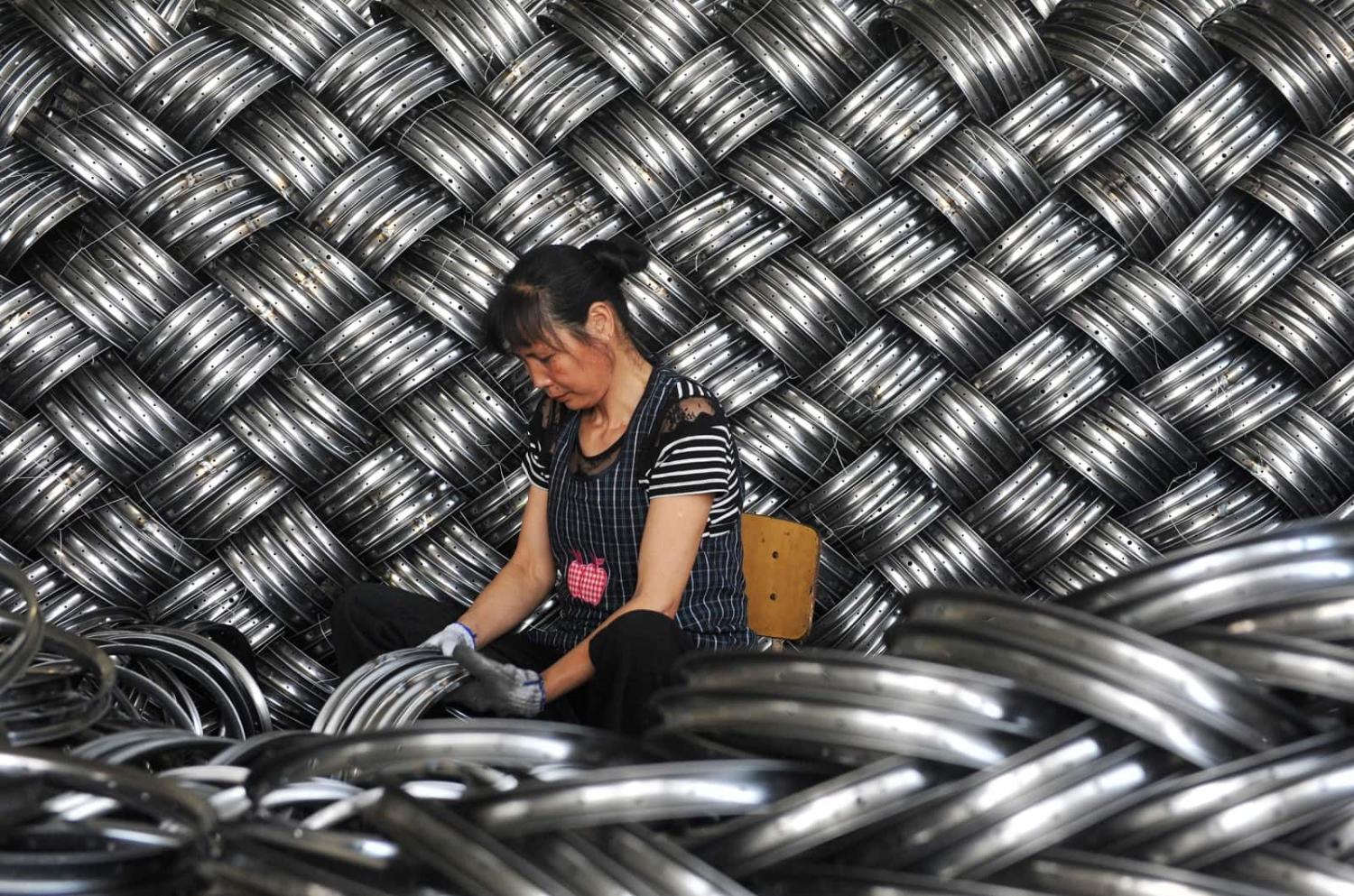Talk is cheap. In the international system, states closely monitor each other’s actions and rhetoric becomes secondary. With the acceleration of great power competition, states are returning to their economic chess boards and questioning the basics – the assumptions of a post-Cold War economic order.
Such rivalry is as old as the states themselves, but renewed competition between major actors such as the United States, China and Russia is sowing deep suspicion, compelling states to prioritise self-sufficiency, at least in the strategic sectors of their economies. Historically, countries have resorted to policies including high tariffs and state subsidies for domestic firms to bolster their industrial capacities when great power rivalry deepens. This trend is reinventing itself in numerous sectors, from chips to rare earths, and is likely to continue.
As early as the 19th century, German-American economist Friedrich List claimed that Germany had much to learn from the United States and Britain. List believed that industrial power is essential for national autonomy. He argued that the United States and Britain extensively deployed protectionism and state subsidies for their domestic industries when it mattered the most – in the early stages of their economic development. List further posited that Britain, contrary to economic orthodoxy, was the first country to sharpen its game of infant industry protection during the nascent stages of the industrial revolution. Only after it built its manufacturing prowess domestically did London open up to free trade.
South Korean economist Ha-Joon Chang, in his book Kicking Away the Ladder, contends that once Britain achieved a degree of industrial robustness through protectionism, state subsidies and its mastery over navigation, it started championing the virtues of free trade and comparative advantage. With its industrial prowess, Britain knew that its exports were the most competitive – relatively inexpensive compared to its competitors’ products. Economic nationalism was sugar-coated with free trade and “cosmopolitical doctrine”.

Similarly, after protecting its industries behind tariff walls, the United States discarded protectionism only after safely ensuring its manufacturing supremacy after Europe’s self-destruction in the Second World War. Like London, Washington became a vocal votary of free trade after basking long enough in protectionism. In other words, developed states spout free trade rhetoric only after they reach the summit.
This is not to argue that free trade is in any way wrong. On the contrary, the logic of comparative advantage is eminently sensible. However, the way free trade has been practiced is skewed. Free trade becomes mutually beneficial for states when countries are at reasonably similar levels of industrial development. When an industrial powerhouse trades with a manufacturing weakling, there is no point in guessing which way the dollar will flow.
Let’s take the example of China. China’s economic transformation over the past four decades has been astounding. Since its economic reforms in the late 1970s, China has lifted a staggering 800 million people out of poverty. From a geoeconomic perspective, the country focused on economic strengthening at home, just like the United States, the United Kingdom, Germany and Japan had done. Learning from the experiences of developed states, Beijing broadly but not wholly eschewed free trade in the early years, instead concentrating on building manufacturing prowess at home and adopting a new-age mercantilist approach. Developing self-sufficiency was at the heart of this strategy.
The country’s mercantilist approach centred on massive industrial subsidies to state and private companies, numerous non-tariff barriers to prevent imports, forced technology transfers, and reverse engineering technology developed in the West. It was only after developing its industrial base that Beijing opened its markets to the world. China’s entry into the World Trade Organisation in 2001 symbolised this turn.
However, the spectre of geopolitics is crumbling old orthodoxies, and economic jostling is taking centre stage with the renewal of great power rivalry. Experts argue that the growing vulnerability of China, economic inequality at home, and the loss of quality jobs are persuading policymakers in Washington to give large domestic investment subsidies and production incentives. The difference is perhaps that President Trump was blunt about it, his successor less so. Restrictions and bans on transferring strategic technologies such as semiconductors and microchips to China have become common.
Beijing is also not holding back. It has imposed export bans on germanium and gallium, crucial components in emerging industries such as solar cells, fibre optics, electric vehicles, electronics and high-performance semiconductors. Advanced and emerging technologies are the areas where Beijing is consolidating its economic energies. To become a great power, top Chinese leaders have called for a “whole nation” strategy to edge out strategic rivals.
In an age of sharpening geopolitics, old assumptions of efficiency trumping reliability are under pressure.

